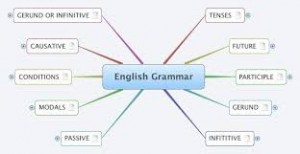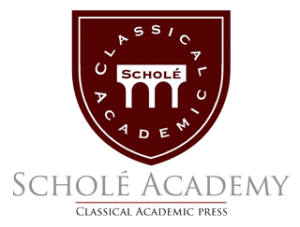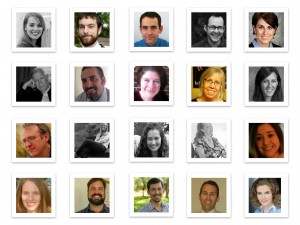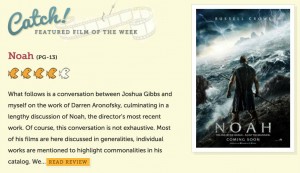by Christopher Perrin, PhD | Sep 9, 2014 | Articles, Schools & Other Organizations

I cut my teeth on classical education as a headmaster of a Protestant classical school for ten years here in central Pennsylvania. Having studied history and classics in college, I knew at least the rough outline of the liberal arts tradition—at least enough to know that the Greeks and Romans studied a good bit of grammar, logic and rhetoric. I read Plato’s Republic in which he describes his ideal education for the ideal guardian for his ideal society.
It is indisputable: classical education existed during the classical periods—before the coming of Christ. Yes, there is a lot of talk about Classical Christian education, and for two good reasons: 1) Historically, the Christian church assumed the mantle of classical education, modified it, calibrated it to serve the Christian gospel and then greatly extended it. Thus a great deal of what we know as “classical education” has been “Christian” as well. 2) The recent renewal (over the past 25 years or so) of classical education has been initiated and led by Christians, particularly Protestants.
Number 1) remains a historical fact, though there are numerous examples of classical, secular schools and institutions that have carried on successfully, especially since the Enlightenment. Many schools that started as classical and Christian schools, are now secular even if retaining some classical elements. Most of the Ivy League colleges for example (Harvard, Princeton, Yale) started as classical and Christian institutions, and are now certainly not Christian, and a mix of classical and progressive elements.
Number 2), the recent renewal of classical education, is changing and extending. While there are at least 240 Protestant classical schools (the number of schools that are part of the Association of Classical Christian Schools) in the U.S. that have started since about 1990, there are many schools that have started outside of Protestantism and outside of the Christian church generally. A number of Catholic schools have returned to the classical approach and new ones are starting. The Institute for Catholic Liberal Education has started to support this effort. Several Orthodox schools have begun as classical schools too. Homeschooling continues its rapid growth in America and the classical approach to homeschooling is one very popular approach that is represented by Protestants, Orthodox and Catholics. Classical Conversations advocates for classical homeschooling and in my estimation attracts mainly Protestants, but also has Orthodox and Catholic participants. Aquinas Learning supports classical homeschool education for Catholics as does Laura Berquist’s Mother of Divine Grace School.
Those outside the Christian church are also rediscovering classical education, and finding it part of their heritage too, even if they sift out the religious elements almost always intertwined with classical education (see number 1). There are approximately 100 classical charter schools that have started around the U.S. in the last ten years—and more are on the way. The Great Hearts Academies association of Arizona has started 19 classical charter schools, with plans under way to start more in other states. Secular classical homeschooling is also on the rise—I note the rapid growth of Hip Homeschool Moms (not officially classical, but with many classical homeschoolers) and Sandbox to Socrates as examples. The Well-Trained Mind Forum contains thousands of classical homeschooling parents and a separate group for secular parents.
I find this very encouraging, and I say this as a citizen and a Christian. Why? As a citizen, I support better education generally. I would rather see a classical public school (likely a charter school) in my neighborhood than a troubled, progressive public school. A secular classical education is superior to what we have today, and a secular, truly classical education, will be by nature friendly to religious tradition. How is that? The ideals of a secular classical education hold forth the reality of truth, goodness and beauty and the life-long pursuit of these transcendentals. Virtue is regarded as real, paramount and attainable. The Great Hearts schools describe this as philosophical realism, rooted in teaching extending back to Plato.
However, I am a Christian and deeply love the Christian classical tradition that assumed, transformed and extended the liberal arts studied by the Greeks and Romans. This is part of a large story not worthy of this short essay, but we can note that large numbers of pagan Greeks and Romans became Christians, were the first Christians, and they adopted and transformed the classical curriculum, putting theology at the head as the queen or governess. Up until about 1900 education was “classical” and largely Christian as well.
I have labored (imperfectly) to give my children a Christian classical education. To my colleagues and friends outside the church, I say give your children a classical education. Study and seek after wisdom, eloquence and virtue, after truth, goodness and beauty. Like so many Greeks and Romans centuries ago you may find that the church (and her theology) the extension of your search, the fulfillment of all that you dream. If not, you will remain my esteemed colleagues laboring for the common-wealth of our children and nation.
Next blog article in this series: Why the Liberal Arts Are for Every Human
Then next after that: Do Classical Charter Schools Threaten Classical Christian Schools?
by Christopher Perrin, PhD | Aug 8, 2014 | Articles

Many classical educators claim that when you learn the grammar of say, Latin, you are learning the grammar of all language. Isn’t this quite a stretch? How can we be so sure that the eight parts of speech and how they function in Latin will describe how they function in all languages? Do all languages have subjects, verbs and objects? I think it is a large claim, and yes, a stretch. I also believe it is true.
Most of us don’t give a lot of thought to the metaphysics of grammar, or just plain grammar for that matter. This has not always been the case. Language is what sets us apart from all other creatures, as even dolphins and monkeys (as smart as they are) have not published any grammars yet. Some may argue that monkeys do make use of subjects and verbs, with regular sounds that indicate “I hungry” and the like. I will concede that monkeys communicate. I will not agree that they know the subjunctive mood.
In the past, the ancients grammarians and philosophers discussed these matters. Some thought that grammar was universal and tied to the reality of the universal Logos (to Christians, meaning Christ himself). None other than Marshall McLuhan (the communication theorist who famously said “the medium is the message”) writes about this. There were those who were analogists, who saw universal grammar as analogy of the universal Logos:
The analogists argued for the view that there is a universal grammar, since language is the effect of reason, which is the analogy of the universal Logos. At the level of conjugations and declensions, this view tended to strengthen the notion of regularity. The anomolists, one might suppose were Epicureans who denied the doctrine of the Logos… They asserted that in speech there is no order. All is based on custom.
Then McLuhan quotes Socrates in the Cratylus. Socrates appears to be an analogist, who thinks that names (words) are related to the inherent nature of things: “I should say that this giving of names can be no such light matter as you fancy, or the work of light or chance persons; and Cratylus is right in saying that things have names by nature, and that not every man is an artificer of names; but he who only looks to the name which each thing by nature has, and is, will be able to express the ideal forms of things in letters and syllables.”
Of course the debate between the analogists and the anomalists continues. The evolutionary atheist will likely (I think must) see grammar as an anomaly, as a convention that has evolved but has no universal quality tied to some universal reason. Whatever reason exists to such a person, can’t exist outside our brains, but must have evolved within them. For the atheist, as Chesterton says, “it is an act of faith to assert that our thoughts have any relation to reality at all.” The theists among us, who believe in a divine and rational reality outside our brains, are likely to admit that grammar could very well be universal and even eternal. To the theist (to the Christian certainly) language and grammar may not be mere convention or custom, but may be reflections of the divine order and even the image of God himself in humans beings. What do you think? What ever you think, you will think with words.
Well, who would have thought that the study of grammar could lead us to metaphysics and theology? It does. Grammar is magical, because language is magic. We speak, other hear and understand. And somehow, when I study grammar in Latin, it is my English that improves.
by Christopher Perrin, PhD | Jul 10, 2014 | Articles

Have you come across this phrase before? It has intrigued me for years. I like the alliterative quality, I like the hints of other words (doctrine from docendo; discipline from discimus). By teaching we learn—really? Surely, we have to learn first then, teach—we get degrees in college so we can teach—right?
Here we encounter an educational paradox. The way to become a great teacher is to remain a student; the way to become a great student is to teach. This Latin motto has been around for centuries and is the motto of colleges and training centers in many places—just Google it (Central Washington College, University of Defense—Czech Republic). If this is a bit of perennial wisdom, why is it so rarely implemented in our schools? Why don’t the upper school students spend some time teaching the younger students? Why don’t students teach occasional sections in their own classes? Several good things can result: teachers get a small break (but then they should observe and assess the teaching of their students); other students will enjoy the change; the presenting student will be on her toes (for it will be a performance of sorts); the presenting student will apparently learn more by having to teach. This seems to me a win-win-win.
Of course, some schools and homeschools are engaged in docendo discimus. Schools that cycle through history, repeating the teaching of historical periods in later grades, can have older students come down to the younger grades to teach history. If the ninth graders and fourth graders are studying medieval history—you can imagine the opportunity. Certainly older students can teach younger students Latin, grammar and mathematics, under the supervision of the class teacher. Students can check homework, meet one-on-one to coach younger students, and occasionally present before an entire class. Older students can even help reinforce reading skills by reviewing letter, phonemes, and words; many schools have “reading buddies”—older students who pair off with younger students and read aloud to younger readers weekly.
This pedagogy harkens back to the traditional one-room schoolhouse on the prairie. With a diverse group of students of varying ages all in one room, the teachers naturally employed older students as junior teachers who would teach younger students, while the teacher would work with another group. As the younger students matured and aged, they naturally would begin to teach those students younger than they. By teaching, they learned.
Now what is a homeschool but a kind of one-room schoolhouse? Yet some homeschool parents (I think because of their own educations) find it hard to imagine that their older students should teach much or at all. Naturally, as parents and teachers, we should be focused on the quality of teaching to any student—and perhaps having a student teach a student diminishes quality. If so, which student loses quality? Certainly not the student teaching—not if the maxim holds true—for if he teaches he learns. If the younger student receiving the teaching of an older one is not taught so well, then we should have him teach another still younger, as soon as possible. Even the younger ones aspire to this, do they not? How often do the seven-year olds instruct the five-year olds at play or during recess? How often do young girls line up their dolls and teach?
by Christopher Perrin, PhD | Apr 18, 2014 | Articles

Many of you have followed my writing and teaching on the concept of scholé in education. Scholé is a Greek word that means leisure, conversation, reflection–restful learning. Yes, scholé is the root word for our word for school, though our schools are generally anything but restful. After a great deal of planning and gathering educators, CAP has launched a new online academy that we have named (no surprise) Scholé Academy. Scholé Academy seeks to implement the principles of restful learning in an online environment.
We are pleased to report that Scholé Academy has some 20 teachers in place ready to teach some 60 courses this summer and fall. The line-up of classical educators who will be serving with Scholé Academy is impressive. All of the teachers have experience teaching in classical schools (our veteran Latin teacher has taught Latin for 47 years!) and several of them are authors of classical curricula (Gaylan DuBose–Latin Alive!; Jolie Hodge–Art of Argument and Discovery of Deduction; Shelly Johnson–The Argument Builder). Students can study with those who …. wrote the book.
So yes, Scholé Academy will seek to implement the classical tradition of restful or leisurely learning online. This may seem oxymoronic, but we believe it can be done. To read a short description of the “scholé approach” see this link:

The scholé approach: restful learning
Readers can also review all of the Scholé Academy authors and their bios by clicking the image below:

My best to you on this Good Friday.
by Christopher Perrin, PhD | Apr 1, 2014 | Uncategorized
You have likely heard that that movie Noah is controversial among many Christians–is it biblical or not? Well, I have read many reviews of Noah, but this one has surpassed them all. FilmFisher.com is not your typical review site, and this review of Noah proves it. The analysis is deep, reflective and borne of a love for truth, artistry, the magic of film and Noah himself. It is critical, it is charitable. It is understands the director Aronofsky, it knows his films, his way. The review also knows the Genesis narrative and the Christian tradition, which it apparently loves. It is a dialogue between two reviewers, a conversation. It is remarkable. Click the image below to read the review…














